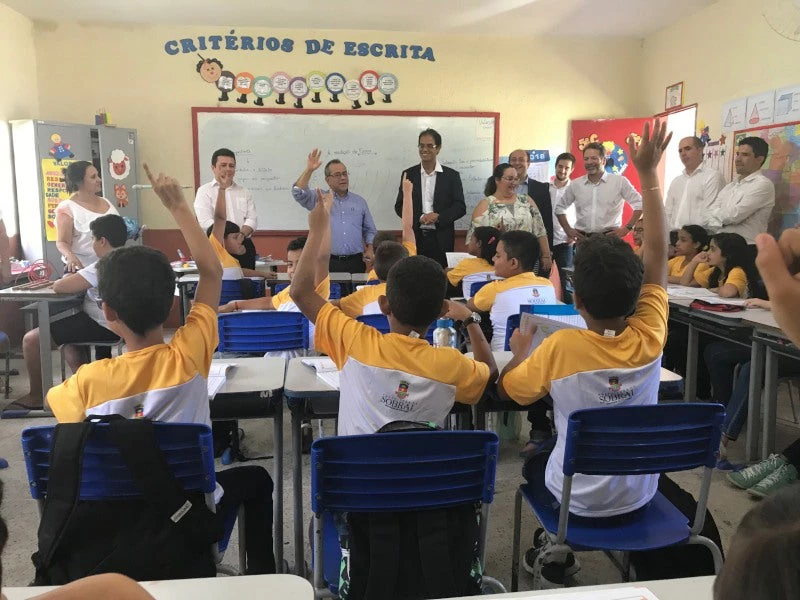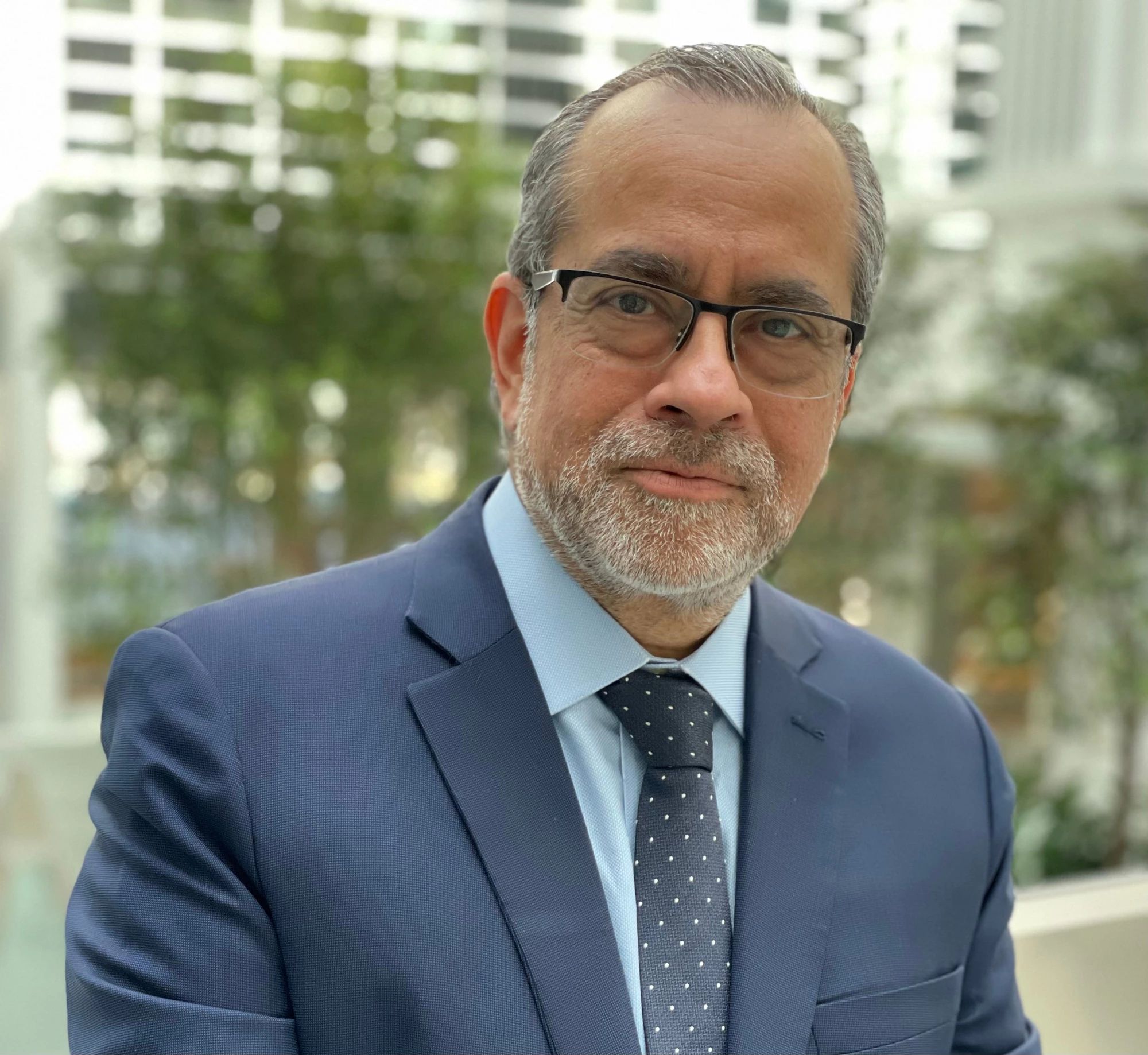 Escola Emilio Sendim Brazil
Escola Emilio Sendim Brazil
The children in Ceará, a poor and relatively small state in northeast Brazil with population of 8 million, have surprisingly high results in learning assessments compared to the rest of the country. And within Ceará, students in Sobral, impoverished municipality in the north, have the highest learning achievement in the state. To be even more precise, they have the highest learning achievements in the whole of Brazil. In 2015, in the Índice de Desenvolvimento da Educação Básica (Basic Education Development Index or IDEB), they ranked first among all municipalities in the country. In the IDEB applied to students from 6th to 9th grade (lower secondary in most countries) they ranked, well…, second. The primary school with the highest IDEB in the country in 2015 was Sobralense, Escola Emilio Sendim (pictured above).
Are a few excellent schools in Sobral or in Ceará what drives the average up? The answer is no. In 2015, 77 of the 100 best primary schools in Brazil were from the state of Ceará, and 22 were in Sobral. In 2017, 5 of the 10 best were in Sobral. Have Ceará and Sobral always been at the top of the Brazilian rankings? Not quite. In 2005, Sobral was ranked 1366th, ten years later, it was first. What happened there?
A few months ago, I had a long conversation with Ivo Gomes, the mayor of Sobral, and a secretary of education in Sobral between 2000 and 2004, with Izolda Cela, the vice-governor of Ceará, who had also been secretary of education in Sobral, and with Herbert Lima Vasconcelos, the current Secretary of Education in Sobral. How a poor municipality in a poor state could have made such a dramatic turnaround?
You can clearly sense the passion, almost an obsession for education in the authorities at the municipality and state government, something that can get a long way in a highly decentralized system like Brazil’s. However, the Sobral and Ceará authorities said they did nothing extraordinary, only what was common sense (which I should add, are usually the most difficult from the political perspective).
Their focus was on learning and teachers seen as the main assets in the educational process. The vice- governor used the Portuguese word “cobranza”, in the sense of “accountability”. You treat teachers as key partners, caring for their living standards and for their welfare, with the authorities in constant contact with them, continuously supporting their work. But at the same time, you make sure they internalize the huge responsibility they have: educating children.
In a way, this may sound like an obvious description of the occupation – teachers are there to teach and make sure all students learn. Hence, is may also sound obvious that politicians with influence over educational systems will do the reasonable thing: select as teachers people with the right motivation, skills and training to do the job.
Unfortunately, in many countries, we see that the selection of teachers, principals or local authorities is not done on a merit base but is influenced by local or national politics. Once you win an election, you need to give jobs to people who supported you. Or to settle political struggles you agree on quotas of teachers of certain race, religion or political affiliation. Or sometimes, you have a well-established informal (or corrupt) system to decide transfers from a rural to an urban area. Or you reduce the entrance standards to favor groups that are a potential political base. Or you do all of the above...
In many countries we find extremely cumbersome teachers’ legislation. Layers upon layers of laws and regulations, issued a long time ago, in parts still valid, but often contradicting one another, that survive like geological strata. One layer that is the consequence of a change that favored a certain group, once becomes financially unsustainable gets amended by another layer that usually does not eliminate the previous one. In many countries it is not unusual that teachers performing similar jobs, are under different regulations with different salaries and benefits. The more cumbersome and harder to understand the legal framework is, the larger the space for arbitrariness and political favoritism.
Mayor Gomes told me that “the most important political decision we took, was to keep politics out of education decisions”. That statement is a deal breaker regarding education reform. The shift in the system implied that principals, teachers and pedagogical coordinators were recruited meritocratically, and never because of connections or through political favors. He communicated effectively with parents that education had to dramatically improve and that they should demand a better service. Mayor Gomes was unknowingly giving us a lecture on political economy and public management.
When teachers are not in their jobs because of their motivation, skills, training and interest in making sure students learn, investment in their professional development or in school inputs will have little or no impact. If the person whose job is to put those inputs and knowledge to use is someone who does not have the skills or the motivation, those investments are wasted money. Spending on teachers’ training when teachers have not been appropriately selected is actually the path of less resistance. It’s doing something no one will complain about because it looks like a good thing. But it is really about avoiding making the necessary, costly, complex and effective decisions. The teacher is the single most important factor of the education process, and not making sure that all efforts are put on selecting the right people to teaching, is a sign that politically, education is not really a priority.
Why is it so difficult to take a decision like the authorities in Sobral took? Maybe because in the same way returns to education take some time to realize, the costs of not reforming it take a while to realize. Politicians never really understand that the cost of under-investment in education or having ill-prepared teachers means depriving children of a better life. It is just one child who did not have a productive school day. That doesn’t sound like a crisis. But once we accumulate those mistakes, and we have millions of school days during which children do not have a good and motivated teacher, we have a learning crisis, which is what we see today.
If we want to address the learning crisis, decisions about the teaching profession must be centered around the quality of the teaching-learning process. Teaching should be a career that reflects the importance societies place on the well-being of teachers because teachers care for the well-being of the students. Placing high social value on the teaching profession means giving the utmost priority to selecting and retaining the right people to be teachers and preventing politics from meddling in decisions that have to do with the education process. And that is a profoundly political decision.


Join the Conversation